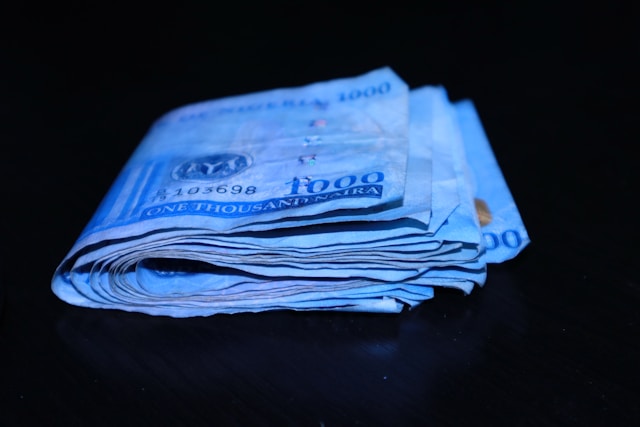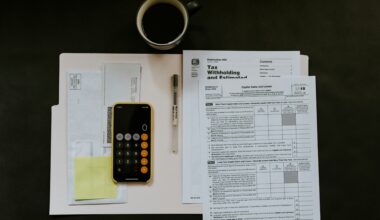The Hidden Risk Right in Your Wallet
Relying heavily on the naira to store your wealth may feel like the obvious, straightforward choice — it’s the local currency after all. But beneath the surface, there’s a silent danger: every day, your money could be slowly losing power. Not through dramatic news headlines, but through creeping, persistent inflation and currency devaluation.
In practical terms: what you can afford with ₦100 today might buy a lot less a year from now — or even less than you think, given where the naira has been headed. In this post, we’ll explore how fast your buying power can vanish, why this matters, and what steps you can take to strike back.
Why the Buying Power of Naira Is Eroding
Inflation Is Not Just a Buzzword
- Nigeria has experienced very high inflation in recent years. According to the 2025 budget outlook by PwC, soaring costs in food, transport, and utilities have eaten deep into household finances. (PwC)
- Even with recent hopes for a cooling inflation rate, many analysts remain cautious. Some expect inflation to moderate, but not disappear.
- Experts argue that despite statistical adjustments (like a CPI rebasing), real inflationary pressures remain, making everyday goods more expensive in naira terms.
Currency Devaluation Is Driving Up Costs
- As the naira weakens, imported goods become more expensive — impacting everything from electronics to food items that rely on imported inputs. One breakdown of how devaluation affects everyday Nigerians shows increased costs for essentials and reduced real value for savings. (The Nigerian Inquirer)
- According to a socio-economic report, in March 2025 the naira was trading at ₦1,585 to the dollar on some markets, underscoring the pressure on local currency.
- For businesses, the impact is real: blue-chip Nigerian firms have reported huge increases in operating costs (OPEX) due to inflation and naira depreciation.
The Long View: Nearly All the Power Is Gone
- Over decades, the naira has lost tremendous value. According to World Data, ₦100 in 1960 would be worth more than ₦1.1 million in 2025 when you adjust for purchasing power. (Tribune Online)
- This long-term erosion shows just how unsuited the naira can be as a store of value if you’re thinking in terms of real buying power.
How Fast Your Naira Can Vanish: A Closer Look
To make things clearer, here’s a simplified comparison of how inflation and devaluation hit your naira:
| Factor | Effect on Buying Power |
|---|---|
| High Inflation (20–35%+ annually) | Prices go up, meaning each naira buys less over time. |
| Currency Depreciation | Imported goods and services become more expensive, pushing up the cost of living. |
| Low Real Interest Rates | If the interest you earn on savings doesn’t keep up with inflation, your “real” savings decline. |
| Long-Term Historical Decline | Over decades, cumulative losses in value dramatically shrink what your money can buy. |
Real-Life Impacts: What This Means for You
- Your Savings Lose Value
Having money in a naira bank account that offers low-interest rates means you’re likely falling behind inflation. Over time, your real purchasing power declines. - Higher Costs for Essentials
As the currency weakens, the price of food, fuel, building materials, and import-based goods all rise. That means your household expenses keep expanding, even if your income remains the same. - Businesses Feel the Pinch
Companies reliant on imported inputs or foreign-denominated debt see their costs soar. These costs often get passed down to consumers in the form of higher prices. - Savings Are Risky If Not Diversified
Relying solely on naira means exposing yourself to inflation and currency risk. Without hedges, you may be unintentionally losing ground.
Why Some People Are Still Betting on the Naira — and Why That’s Risky
There is a school of thought that suggests a weak naira actually helps Nigeria’s trade competitiveness. In fact, analysts at Chatham House argue that depreciation has boosted Nigeria’s competitiveness by making its exports more attractive. (Businessday NG) But this doesn’t necessarily benefit someone holding naira savings.
Here’s why relying just on the naira can backfire:
- The competitive boost is good for exports, not for everyday consumers who spend naira on imported goods.
- For the average person, the gains are overshadowed by inflation risk: your saved money buys less, very quickly.
- If you don’t have access to foreign currency savings or investment channels, you’re fully exposed to the naira’s volatility.
What You Can Do to Protect Your Wealth
Here are practical steps you can take to shield your buying power from the risks of naira erosion:
- Diversify Your Savings
- Consider holding part of your savings in foreign currency if possible (dollars, euros), or in assets that are more inflation-resistant.
- Explore local investment options like real estate, inflation-linked instruments, or equities — depending on your risk tolerance.
- Use Inflation-Hedged Investments
- Check for government securities or fixed-income products that may offer better returns or protection against inflation.
- Consider long-term assets (e.g., property) which may appreciate in line with or above inflation.
- Limit Cash Hoarding in Naira
- Rather than keeping large cash balances in naira, move surplus into productive investments.
- Use digital savings platforms or banks that offer better interest than traditional accounts (when feasible).
- Track the Macro Trends
- Stay informed about inflation, exchange rates, and macroeconomic policies. If devaluation or inflation risk is rising, be ready to adjust.
- Read economic reports, follow credible analysts, and leverage market tools to make decisions.
- Work With Trusted Financial Advisors
- A financial planner or wealth advisor can help you build a strategy that mitigates currency risk.
- They can guide you on diversifying into less volatile or more resilient asset classes.
A Balanced View: Not All Bad — but Risk Is Real
To be fair, it’s not all gloom and doom. Some devaluation of the naira has come with economic benefits — like greater export competitiveness, as noted by Chatham House analysts. (Chatham House)
But that doesn’t automatically protect your savings if you’re holding them in naira. For many Nigerians, the devaluation has come with a very real cost: higher prices, reduced purchasing power, and shrinking real value of their hard-earned cash.
Conclusion: Don’t Let This Danger Lurk Unseen
The naira is more than just your local currency — for many, it’s the foundation of everyday financial life. But that foundation is quietly being chipped away.
- Inflation and devaluation are eroding what your money can buy.
- Relying solely on naira could mean watching your savings shrink in real terms.
- Constant vigilance, smart diversification, and using inflation-hedged assets can help you protect your wealth.
This silent danger may not be flashy, but it’s powerful — and it deserves attention. Protecting your money today means being prepared for the currency risks of tomorrow.
This Surprising Nigerian Tax Rule Could Cost You ₦100,000 If You Don’t Act Now







1 comment